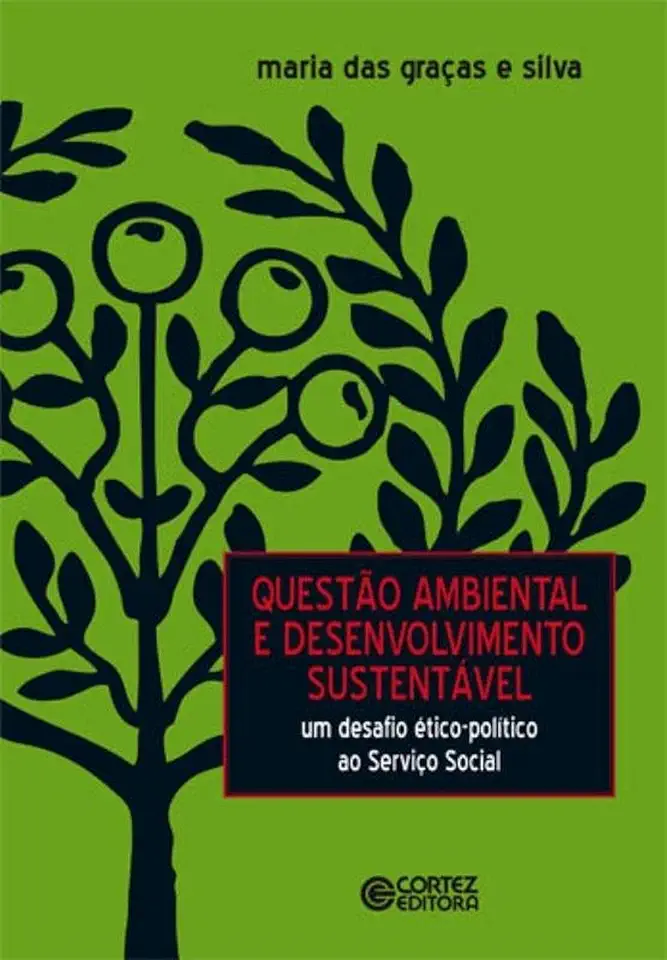
Environmental Issues and Sustainable Development - Maria das Graças e Silva
Environmental Issues and Sustainable Development: A Comprehensive Guide to Preserving Our Planet
Introduction
In today's world, environmental issues have become increasingly pressing, demanding immediate attention and action. From climate change and global warming to deforestation and biodiversity loss, the challenges we face are daunting. However, there is hope. Sustainable development offers a path forward, allowing us to meet the needs of the present without compromising the ability of future generations to meet their own needs.
Understanding Environmental Issues
Environmental issues encompass a wide range of challenges that threaten the health of our planet and its inhabitants. Some of the most pressing issues include:
Climate Change: The rise in greenhouse gas emissions, primarily due to human activities, is causing global temperatures to increase, leading to extreme weather events, rising sea levels, and disruptions to ecosystems.
Deforestation: The clearing of forests for agriculture, development, and other purposes is resulting in the loss of biodiversity, soil erosion, and increased carbon dioxide levels in the atmosphere.
Biodiversity Loss: The rapid decline in the variety of plant and animal species is primarily caused by habitat destruction, pollution, and climate change. This loss disrupts ecosystems and threatens the survival of countless species.
Pollution: Air, water, and land pollution from industrial activities, waste disposal, and agricultural practices are causing significant health problems and environmental degradation.
Water Scarcity: The increasing demand for water, coupled with climate change-induced droughts, is leading to water shortages in many regions, affecting agriculture, ecosystems, and human populations.
The Imperative for Sustainable Development
Given the urgency of these environmental issues, sustainable development has emerged as a critical approach to addressing these challenges while ensuring the well-being of present and future generations. Sustainable development aims to:
Balance Economic Growth with Environmental Protection: Promote economic growth that minimizes environmental impacts, such as adopting renewable energy sources, implementing sustainable agriculture practices, and reducing waste.
Ensure Social Equity: Address social inequalities and ensure that the benefits of development are shared equitably, empowering marginalized communities and promoting social justice.
Foster Intergenerational Responsibility: Consider the long-term consequences of our actions and make decisions that safeguard the environment and resources for future generations.
Key Principles of Sustainable Development
Sustainable development is guided by several key principles that provide a framework for action:
The Precautionary Principle: When there is a threat of serious or irreversible damage to the environment, lack of full scientific certainty should not be used as a reason for postponing measures to prevent or minimize the damage.
The Polluter Pays Principle: Those who pollute the environment should bear the costs of preventing, controlling, and cleaning up the pollution.
The User Pays Principle: Those who benefit from the use of natural resources should pay the costs of managing and conserving those resources.
The Intergenerational Equity Principle: The present generation should ensure that the benefits of development are shared equitably with future generations.
Implementing Sustainable Development
Achieving sustainable development requires concerted efforts from governments, businesses, and individuals. Some key strategies include:
Policy and Regulation: Governments can enact policies and regulations that promote sustainable practices, such as carbon pricing, renewable energy incentives, and land use planning.
Corporate Social Responsibility: Businesses can adopt sustainable practices throughout their operations, including reducing waste, conserving energy, and sourcing materials responsibly.
Individual Action: Individuals can make a difference by adopting sustainable lifestyles, such as reducing energy consumption, recycling, and supporting environmentally friendly products and services.
Conclusion
Environmental issues pose significant challenges to our planet and its inhabitants. However, sustainable development offers a path forward, allowing us to address these challenges while ensuring the well-being of present and future generations. By embracing sustainable practices and working together, we can create a more sustainable and resilient world for all.
Call to Action
Join the movement towards sustainable development. Educate yourself about environmental issues, make sustainable choices in your daily life, and advocate for policies that protect our planet. Together, we can build a better future for ourselves and for generations to come.